It is a grey Saturday afternoon in November 2024, but the British Library is buzzing with creative activity. My MA Creative Writing and Education is hosting an event for the general public on the British Library, research and creative writing in one of the library’s learning rooms.
The creative writing educators on the MA Creative Writing and Education at Goldsmiths, which I am Head of, have devised a number of wonderful creative writing learning activities for the participants. One writer, Lisette, has produced a marvellous task which involves people understanding and sensing the smells in the library, both historical and present. Another, Katharina, has used the Sound Library to encourage people to respond creatively to the noises and music they hear. One group, led by Kate and Janet, have used a poem in the Special Exhibitions part of the library to foster creative responses. Another MA Creative Writing and Education student, Aimee, encourages people to speak back to the colonial nature of the library using creative writing.
It was an experiment to run the afternoon; a chance for the creative educators on the course to hone their skills as teachers of creative writing in an informal setting, but it proves to be a great success. This is partly because of the diversity of people who sign up for the event; a parent with her three young children who are 6, 8 and 12 years old; a GCSE student with her mother wanting to learn more about writing; a few students, adults and teachers interested in developing their creativity skills; a published writer. They have come from all walks of life, but are united by their interest in creative writing. The British Library proves to be a welcoming space for them.
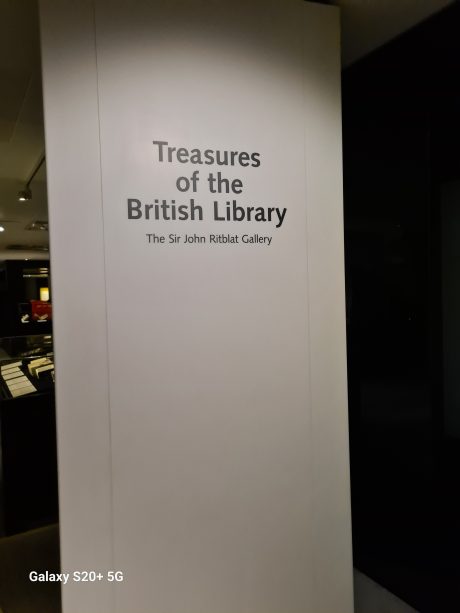
The gallery where many of our writers sought their inspirations!
Alex who participated in the Soundscape creative writing exercise said: ‘I found it extremely freeing to be able to use sound as a prompt. In the past, I’ve only used sound accidentally, rather than on purpose, but engaging with this method enables you to work with different layers of meaning…I want to congratulate Katharina on such an excellent task.’ Alex wrote a creative response to listening to a recording of an orchestra. He was asked by Katharina to imagine where he was as he was listening to the piece. He pictured himself in a recording studio, listening to instrument ‘tuned to precision’, and connecting with the music, the people, and the cosmos.
Aimee’s task led to a fascinating discussion about history textbooks, and how they have changed, where they used to be about the ruling classes, whereas now there is more focus upon movements like the Chartists and the trade unions.
Feedback for the event was very positive.
One participant said: ‘This has been a stimulating and inspirational session. I loved the prompt of ‘Sometimes I wish’ to develop my creative writing…It was an opportunity to work almost to a ‘mini commission’ with a deadline so I didn’t have the time to go down a creative rabbit hole.’
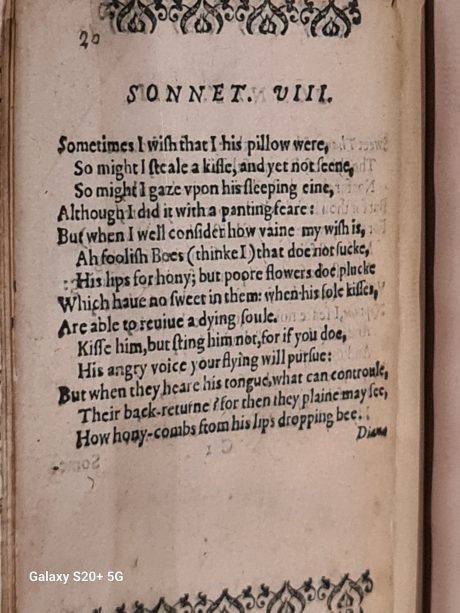
The sonnet ‘Sometimes I wish…’ by Richard Barnfield in the Sir John Riblat gallery, the British Library
The poem ‘Sometimes I wish…’ in the British Library
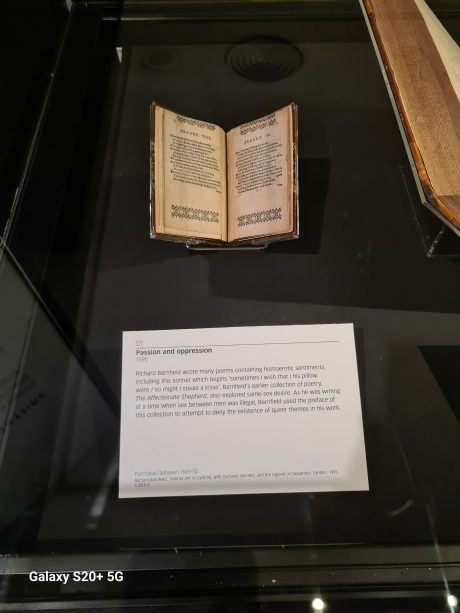
Another participant wrote ‘I feel as though this experience has been a reminder that you can explore different regions of the world, past and present, and that it allow you to enter another time, and learn that those stories really do shapre our views today.’
Another participant, Alex, wrote ‘My learning goal was interesting, stimulating and hugely engaging, using sound as a prompt for writing….The task led to some really deep explorations of thought and feeling…It would be great to have a Part 2 to come out!’
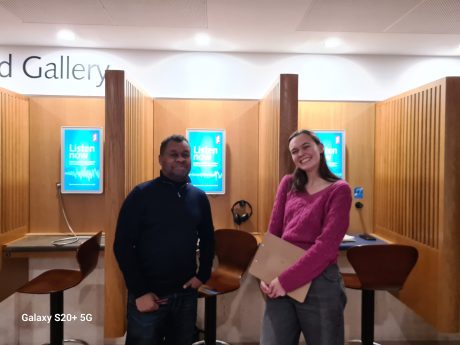
Alex with his creative writing tutor, Katharina by the sound booths in the British Library basement
Another participant wrote: ‘I really liked today and the important thing I learnt is we could all become great writers even if we think we have little talent, because we just need to have ‘heaps’ of just doing it! Sometimes we are our own biggest critics, we should just do it!’
MA Creative Writing and Education students at the BL discussing, planning and creating!
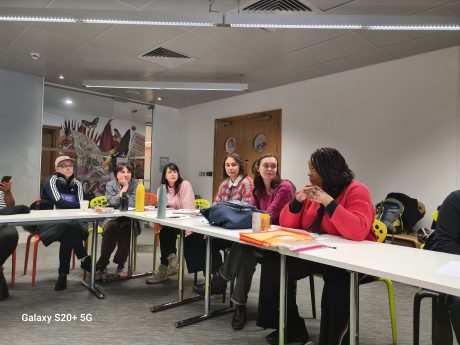
Other participants learned about the importance and benefits of freewriting, the ways in which writing can unlock new perspectives, using history and creative writing to unlock creativity, and enjoyed being guided through the library by writers.
All the participants asked to have a follow-up, which we at the MA Creative Writing and Education and British Library plan to do. More anon!

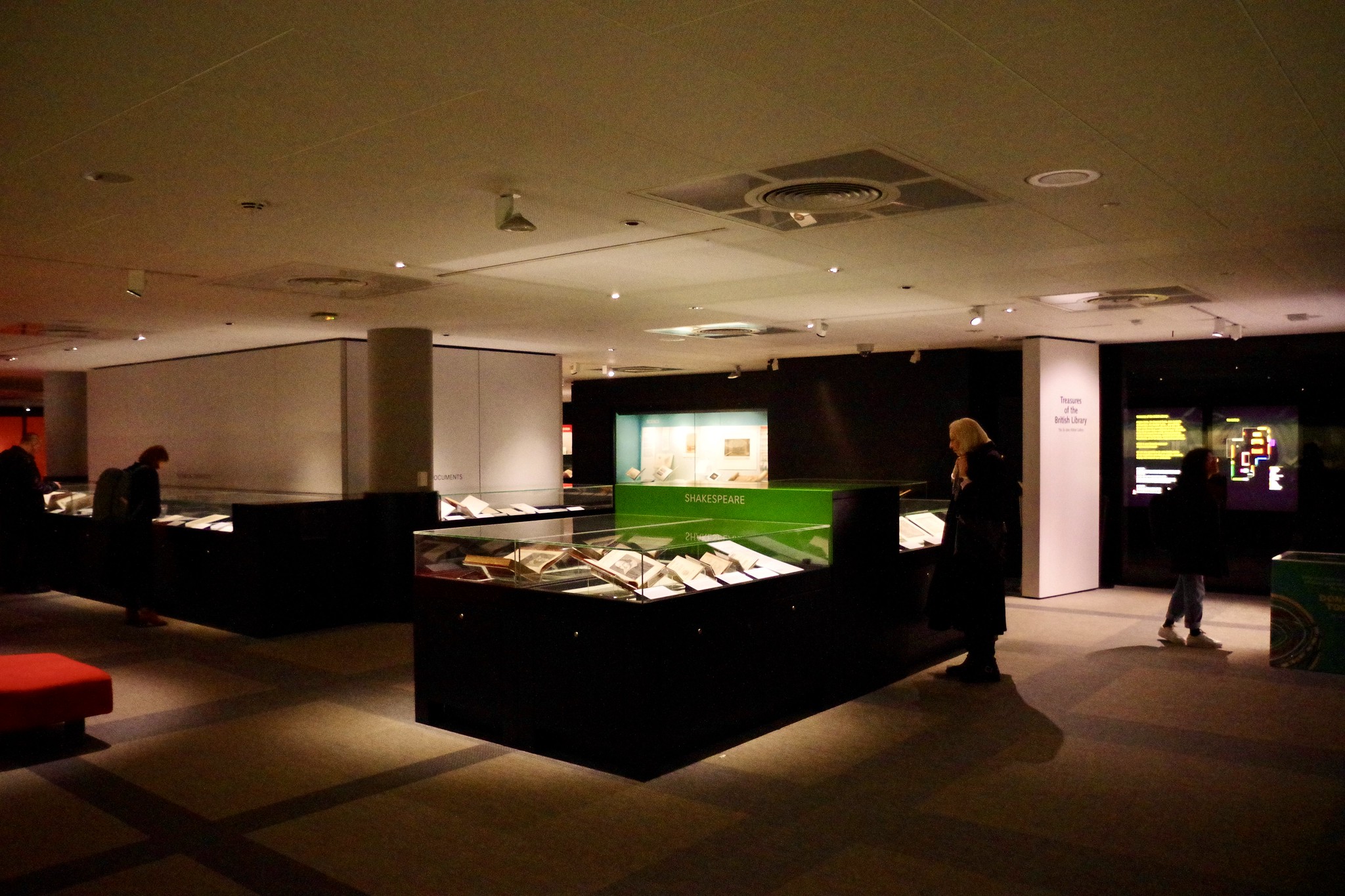
Leave a Reply